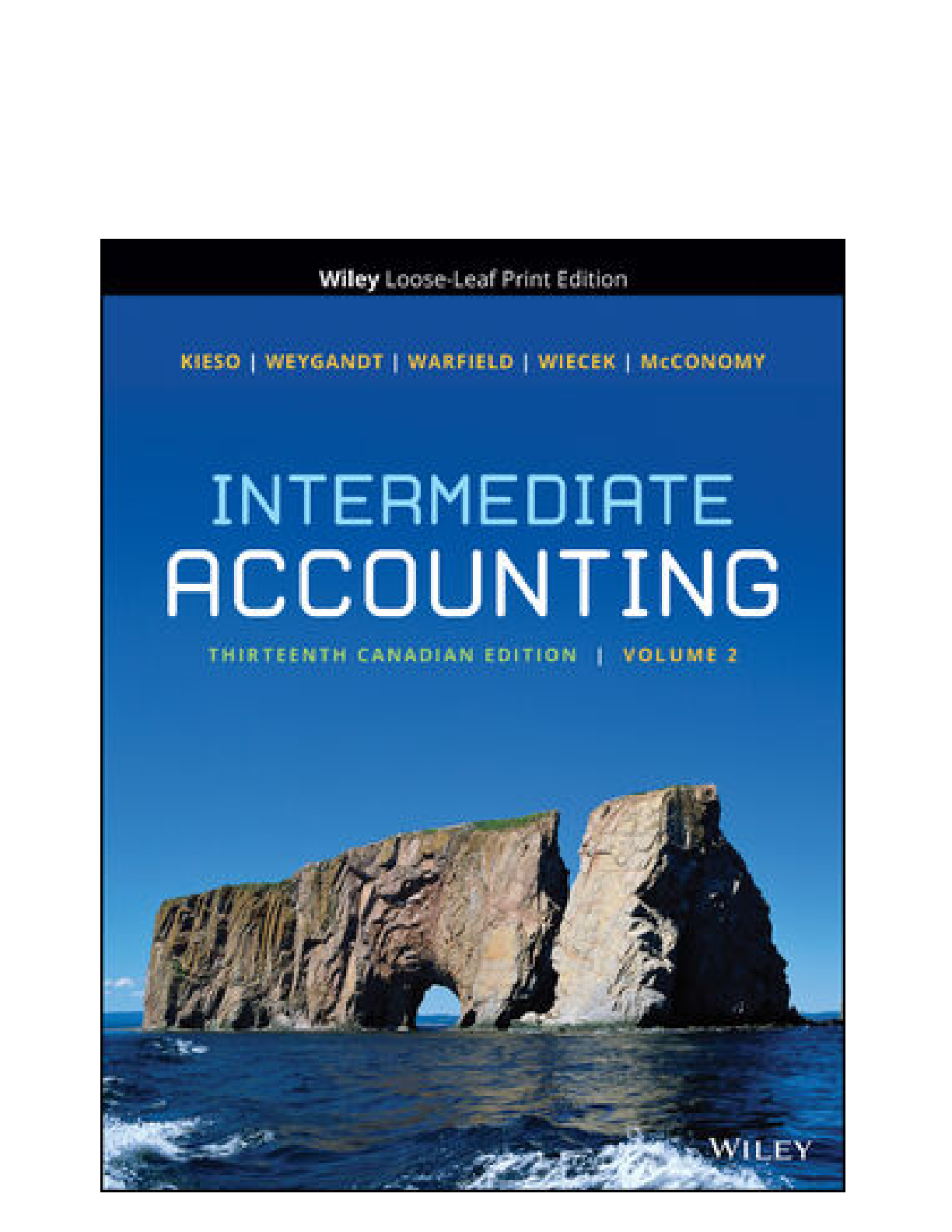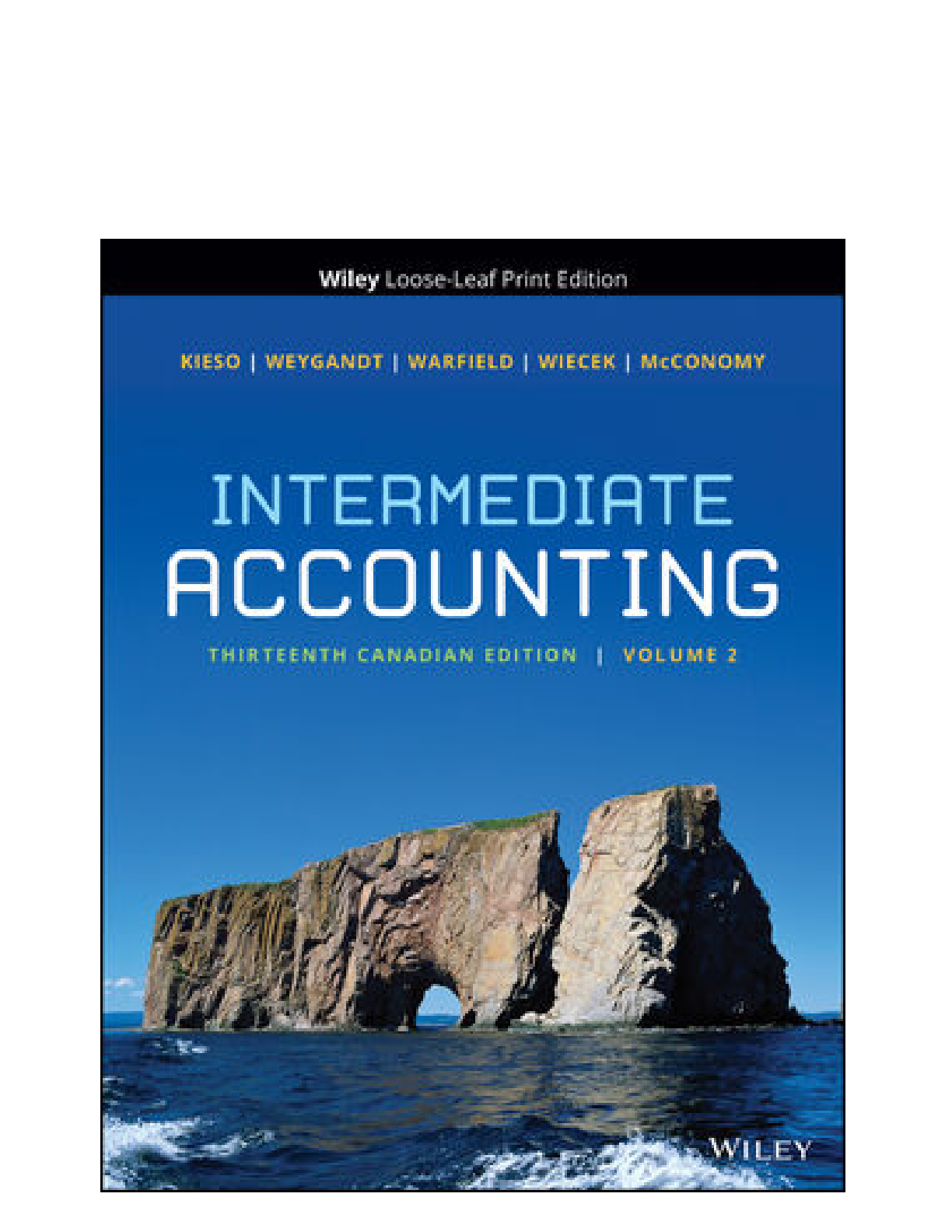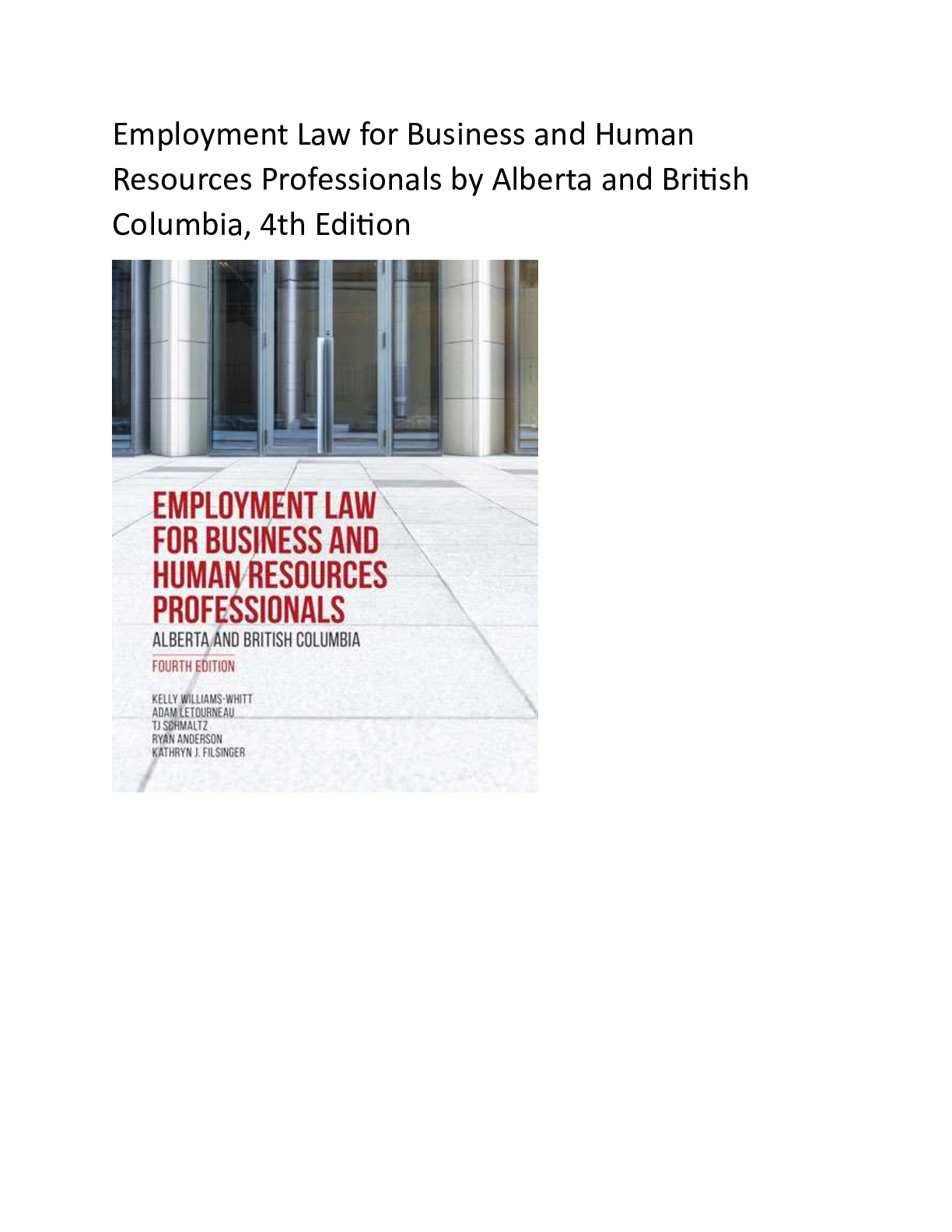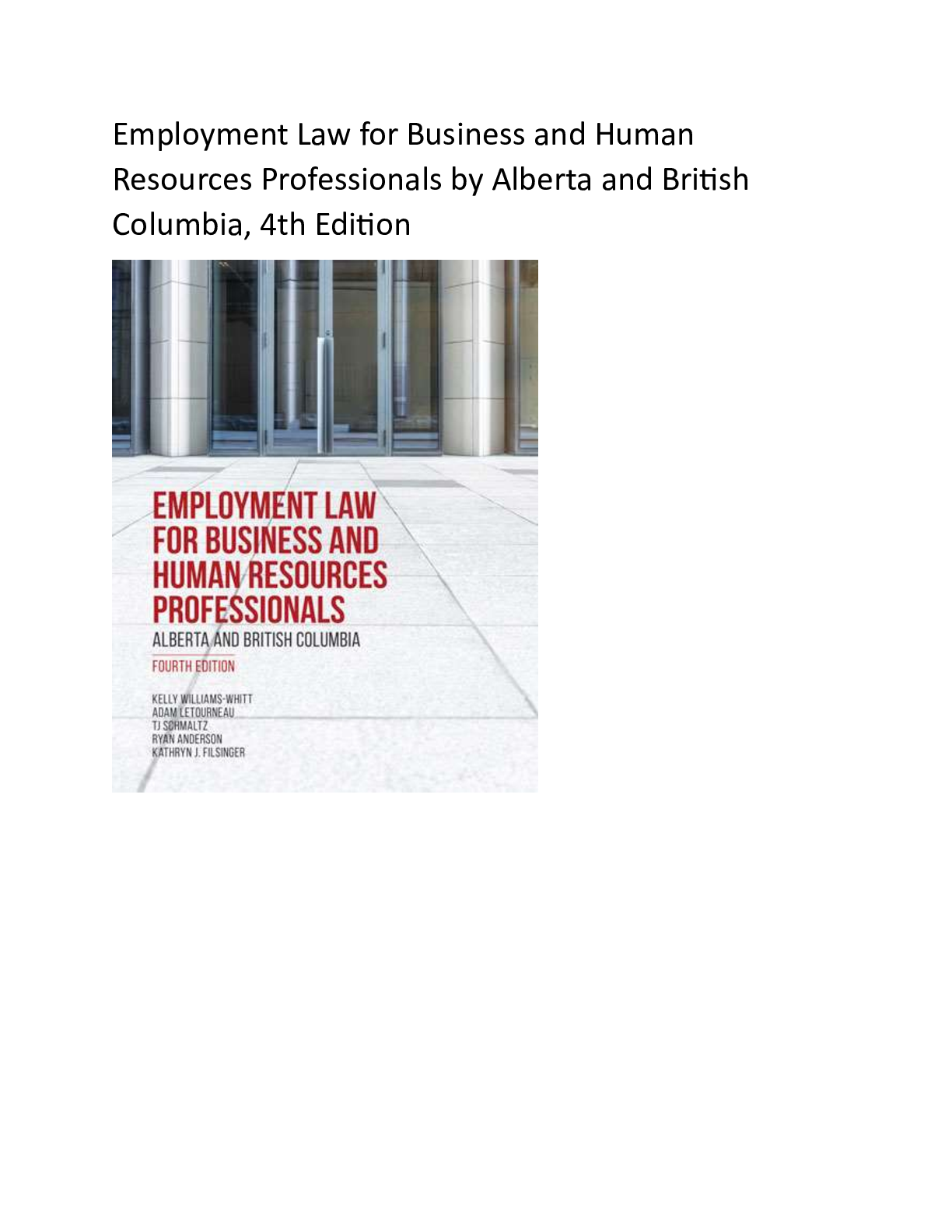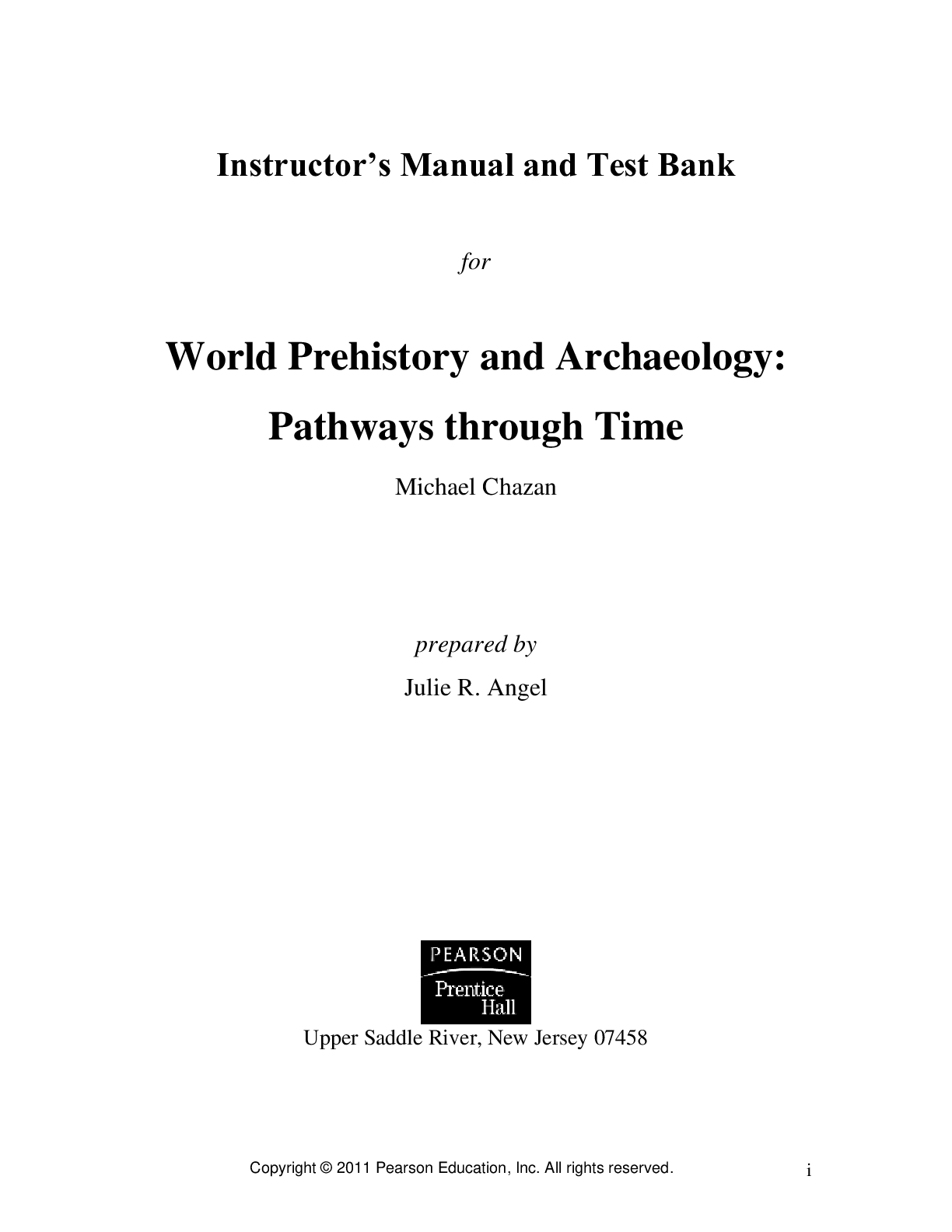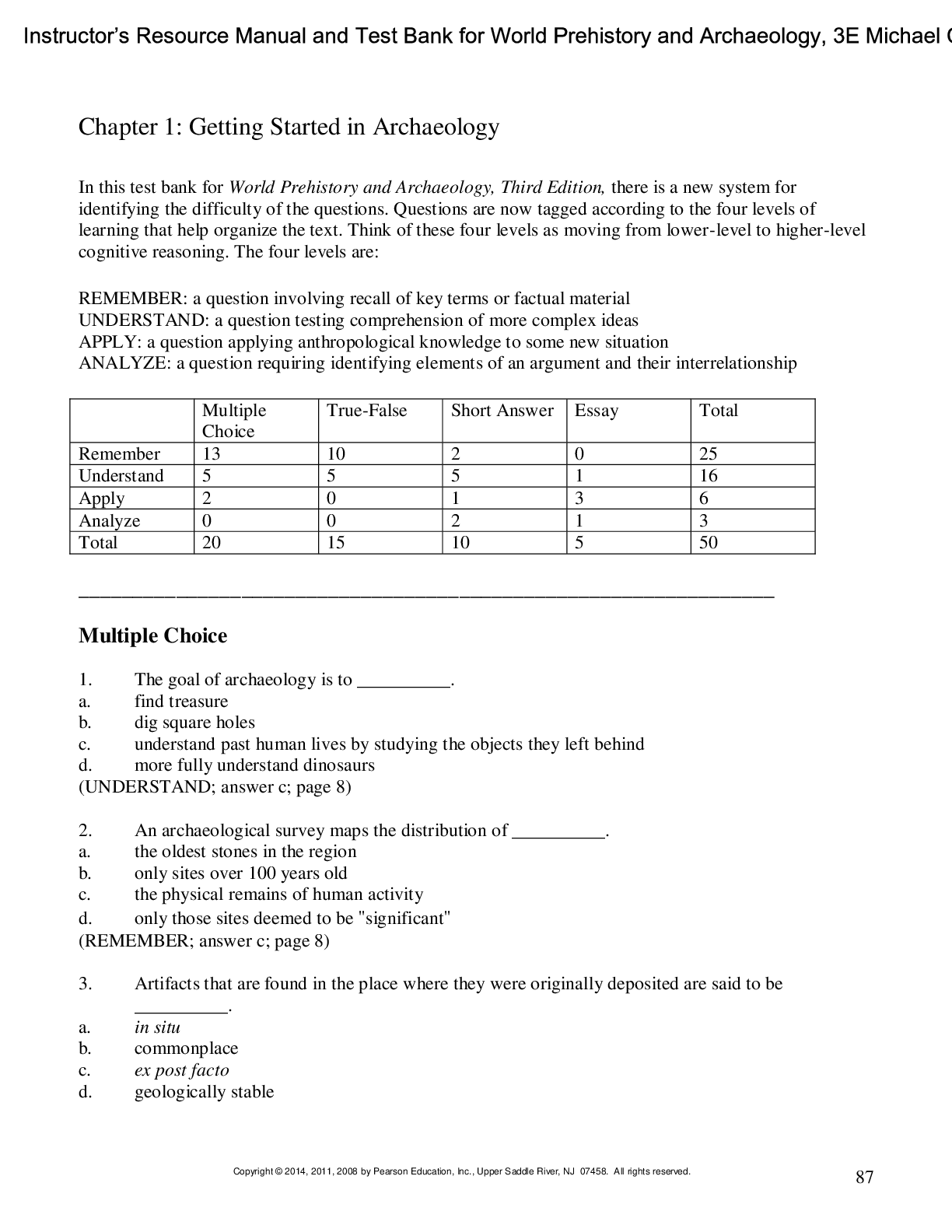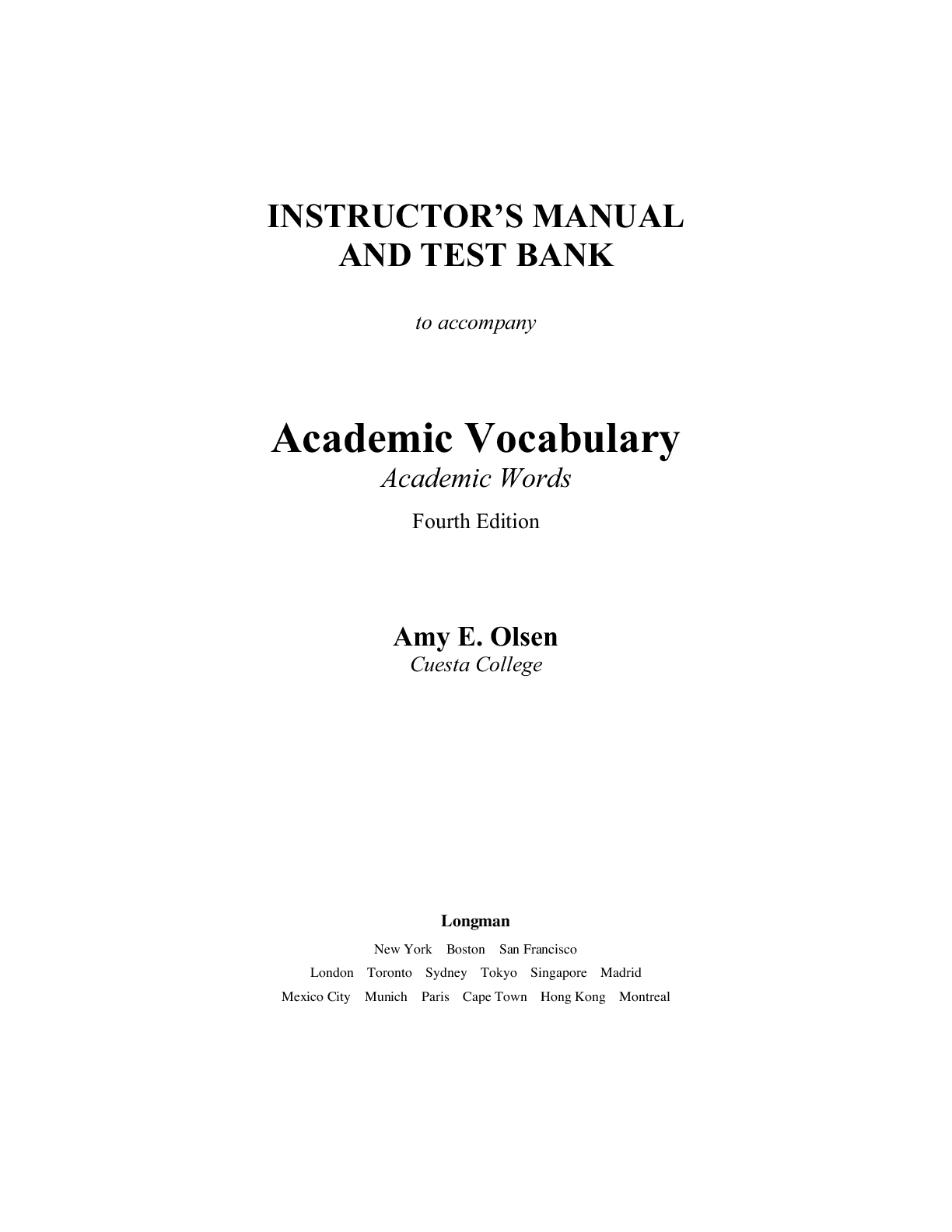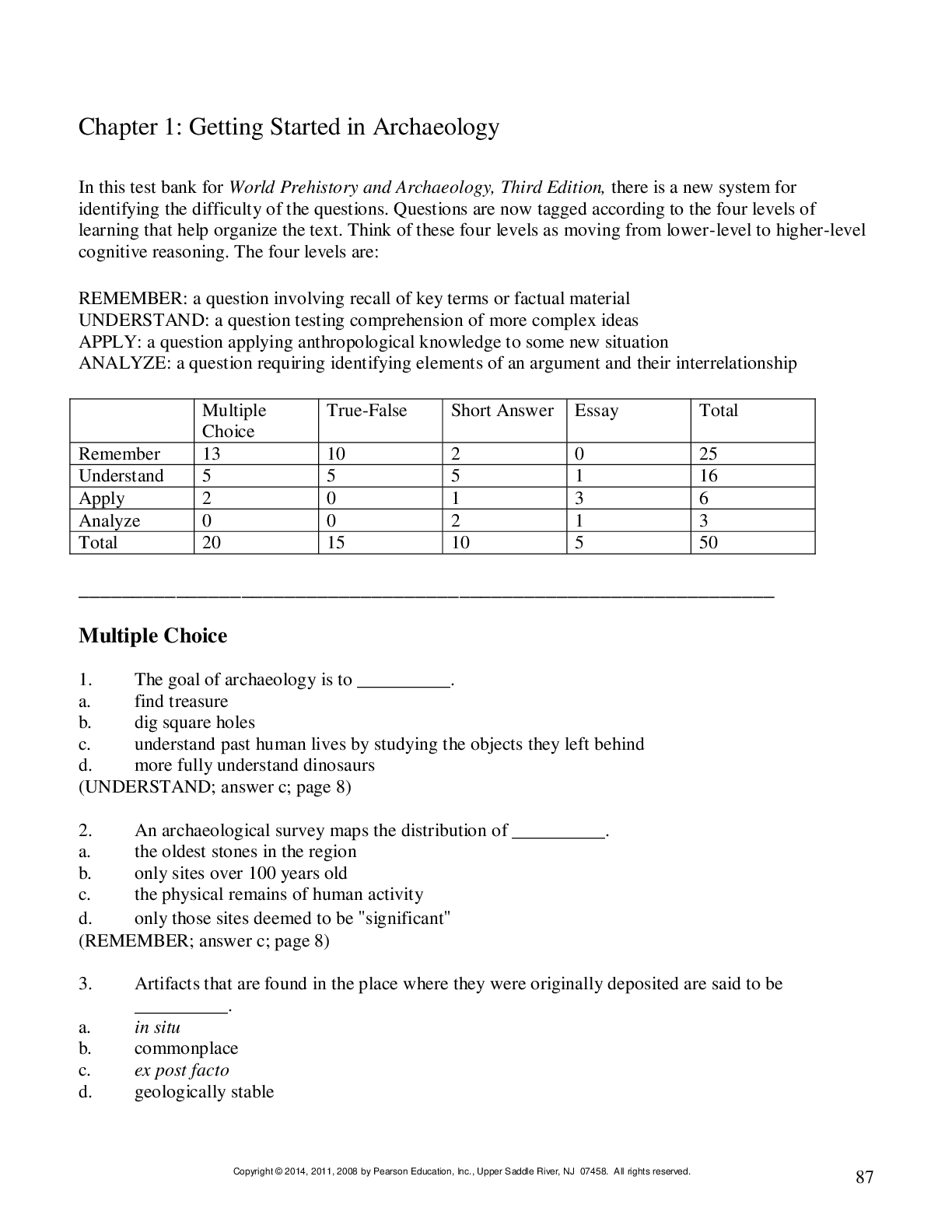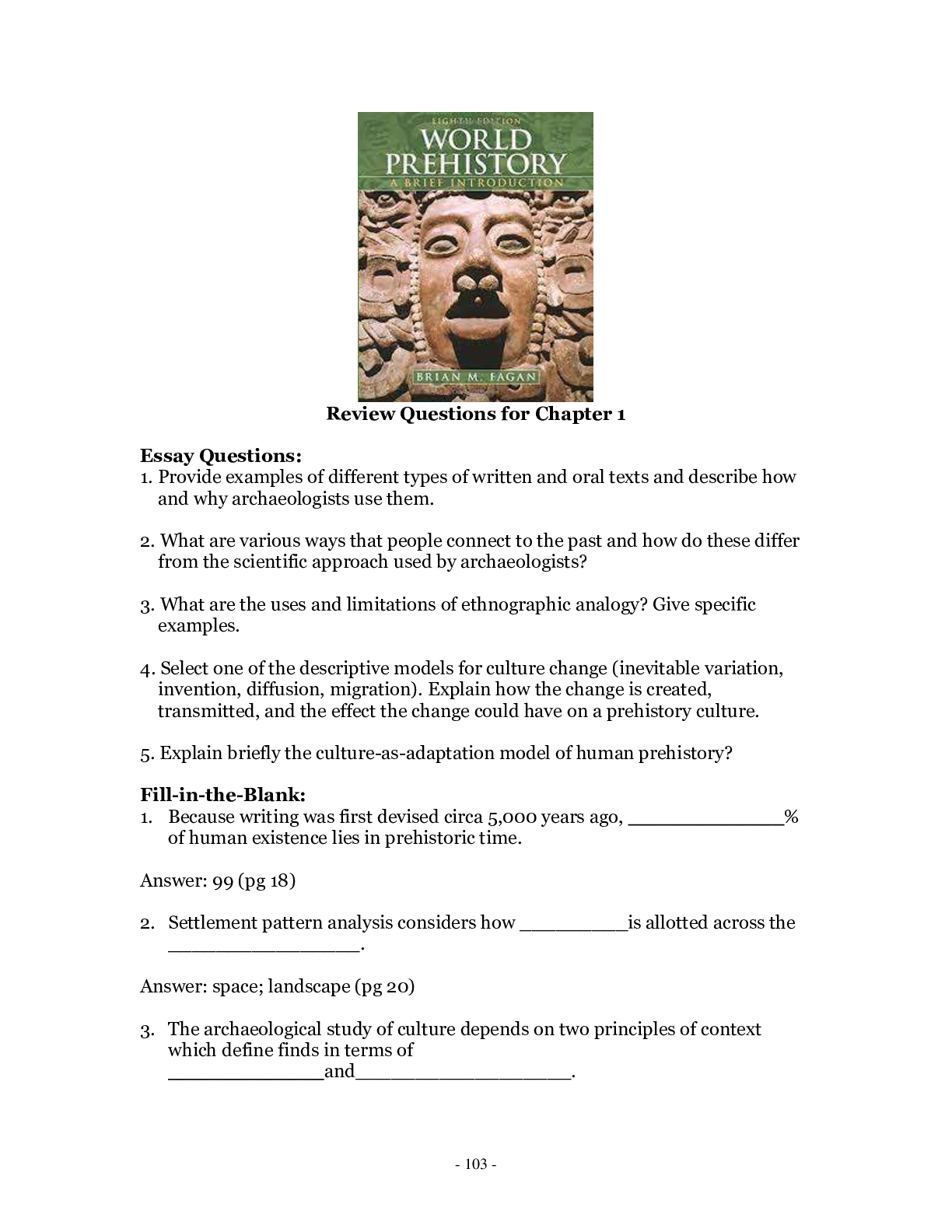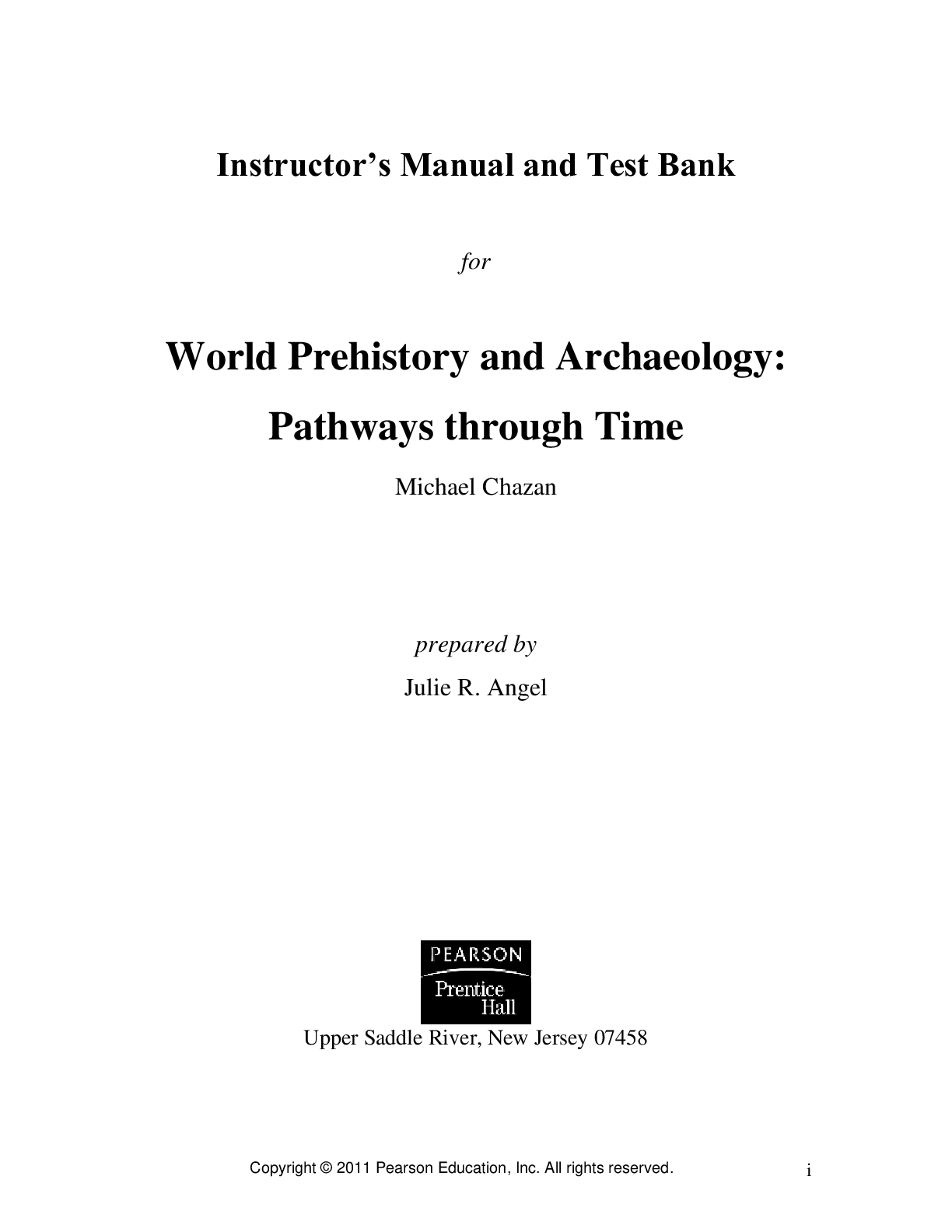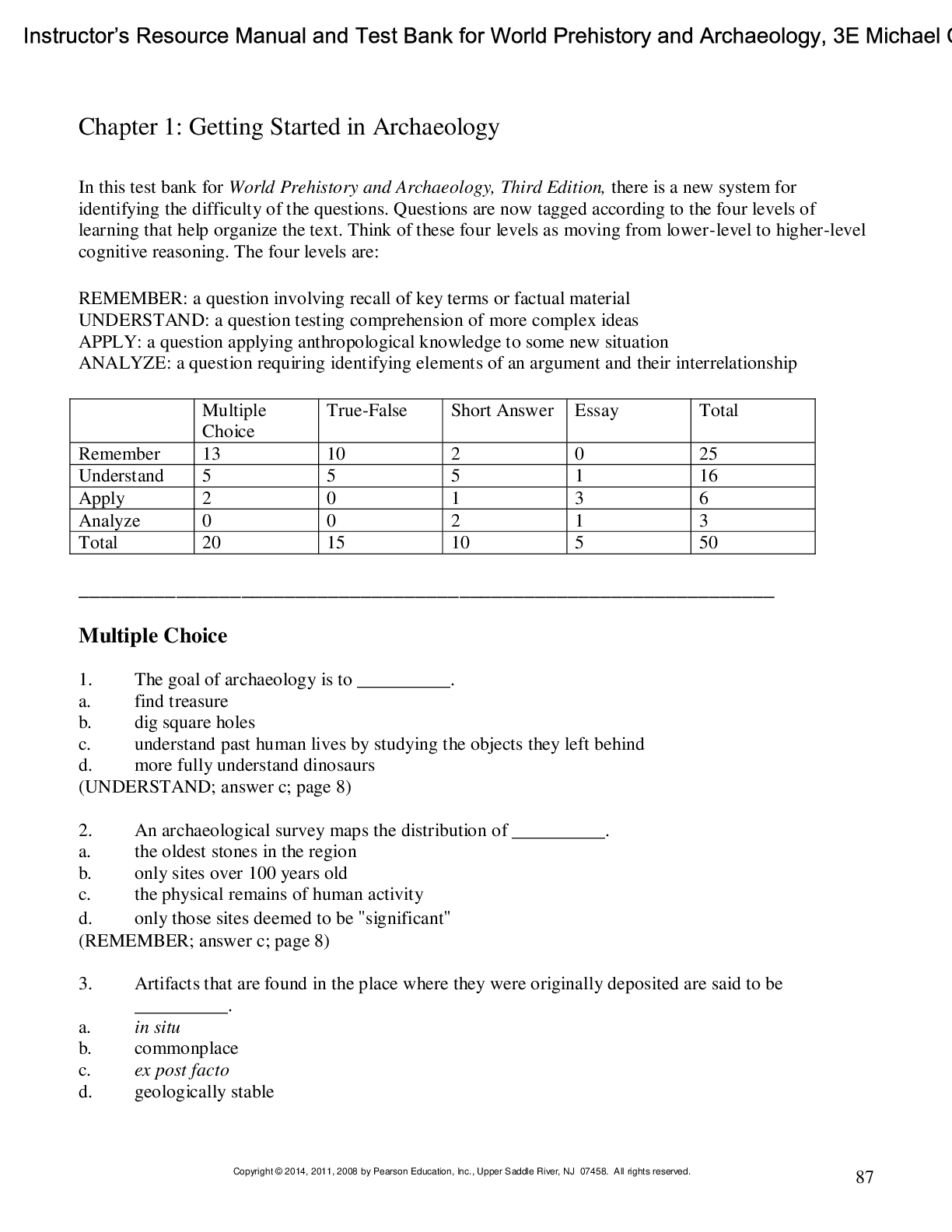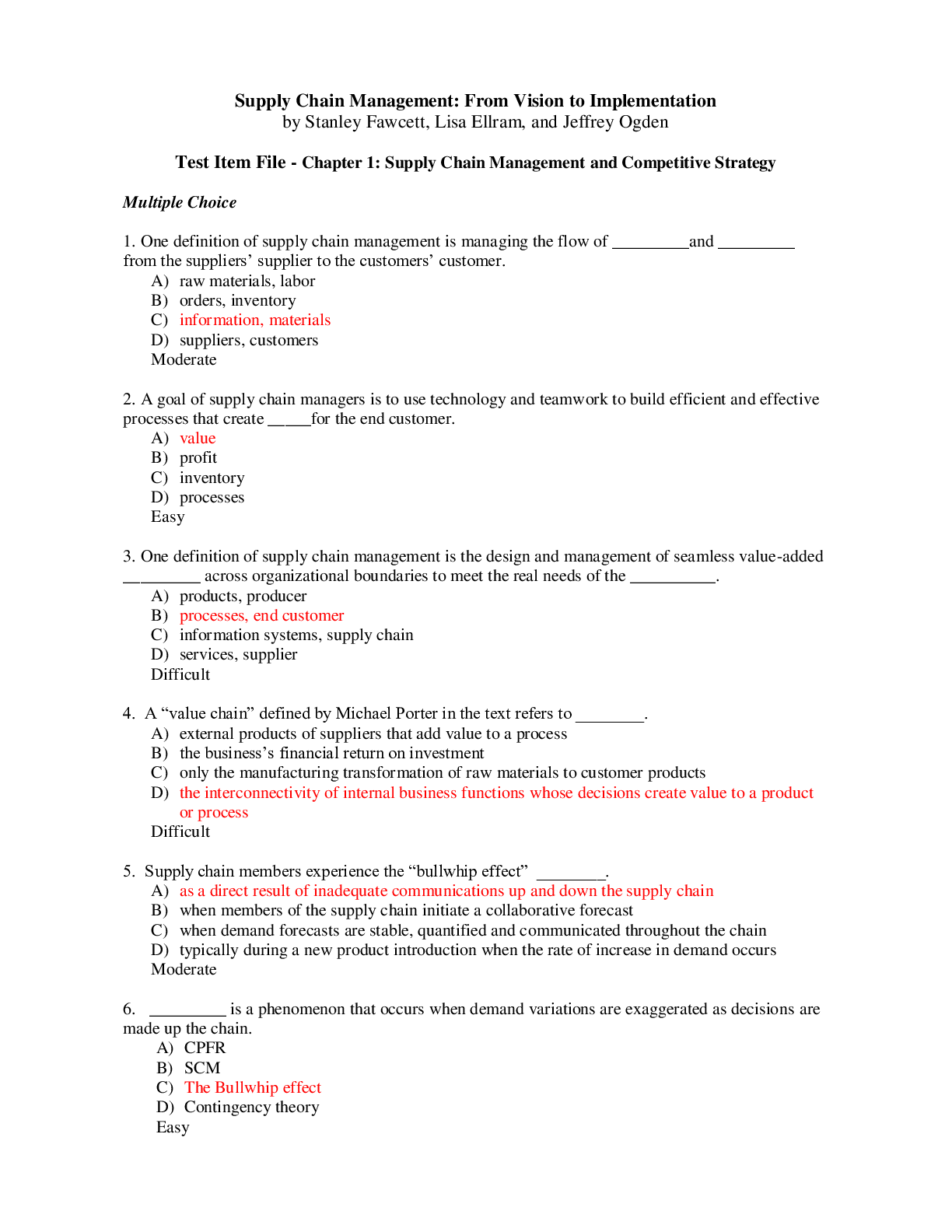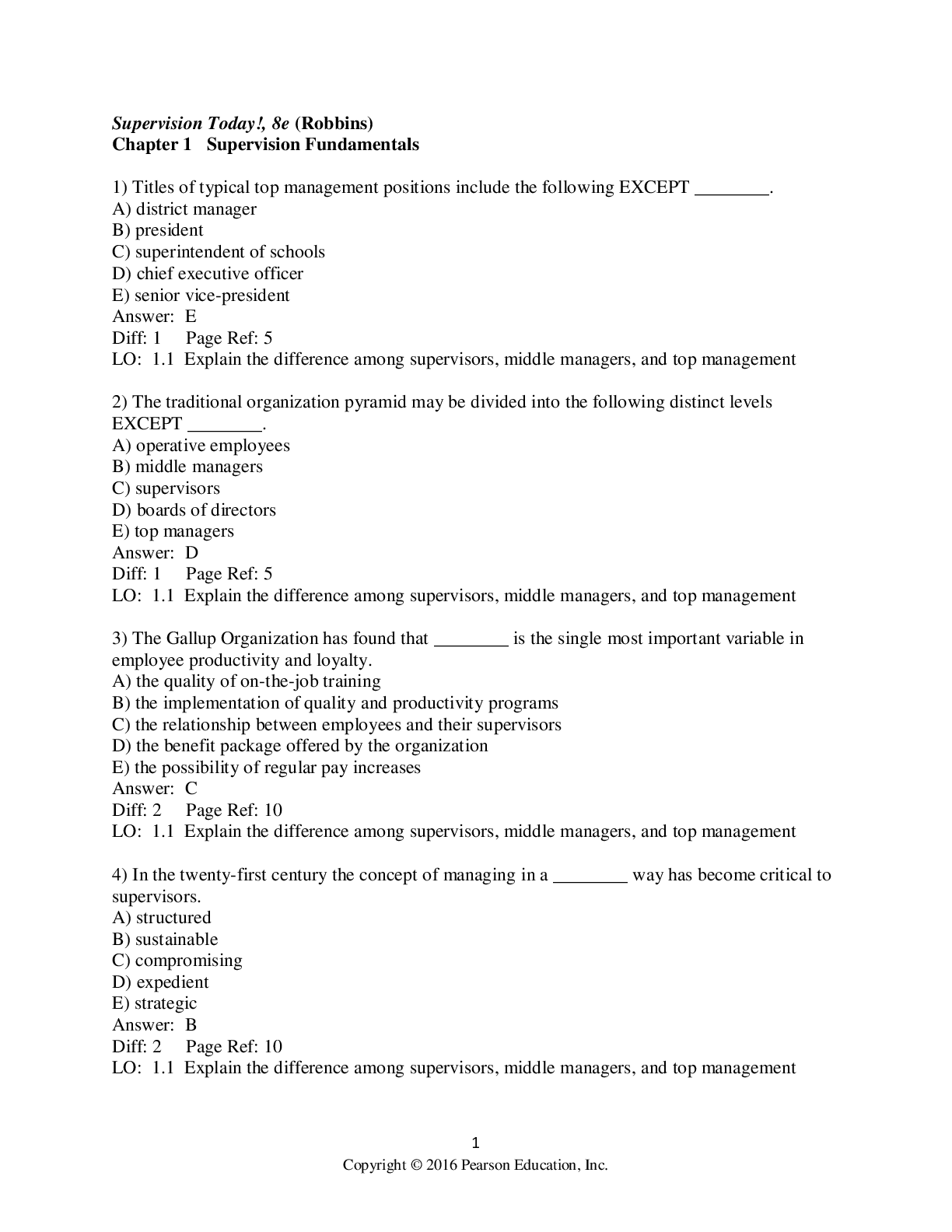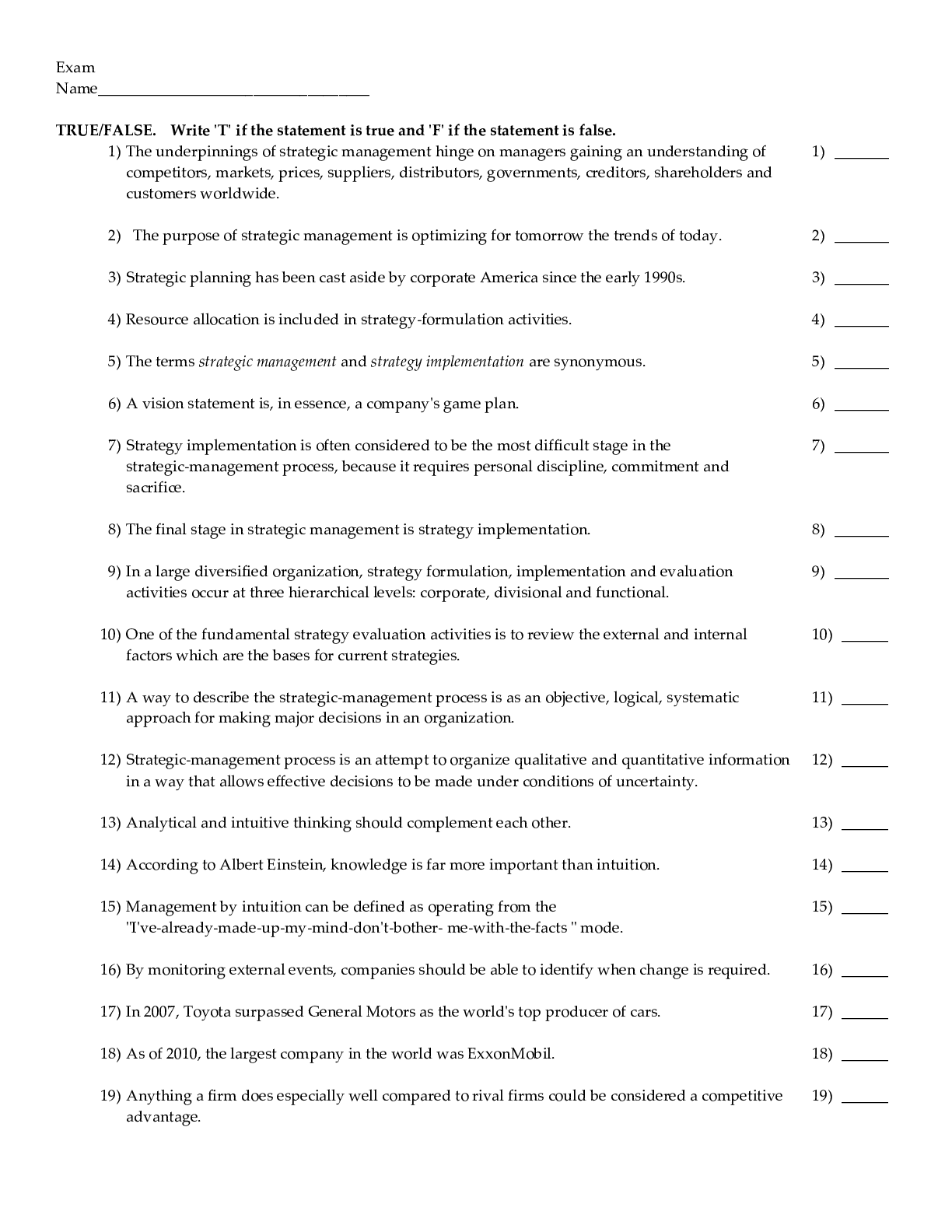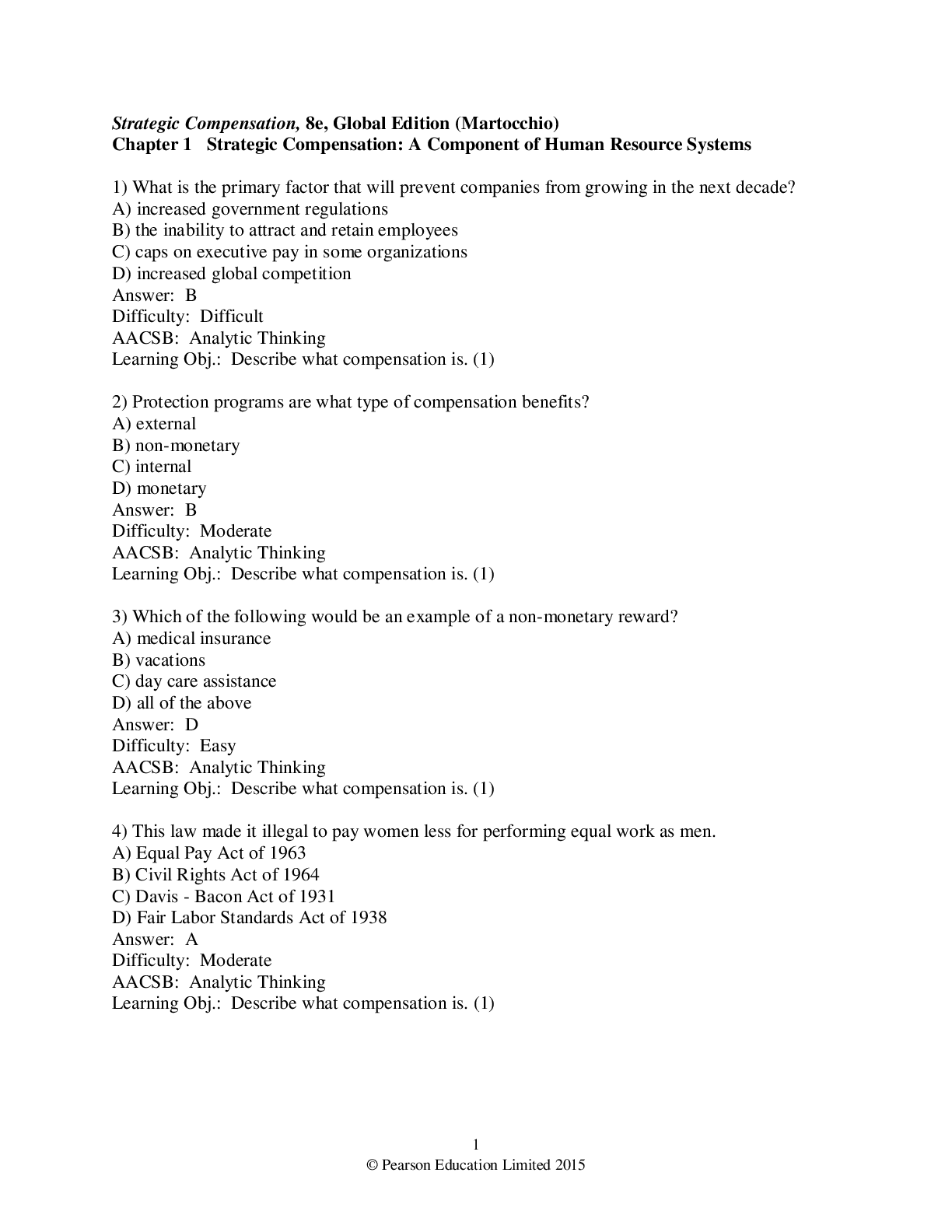Archaeology > TEST BANKS > Test Bank & Instructor Manuals For World Prehistory and Archaeology, 3E Michael Chazan (All)
Test Bank & Instructor Manuals For World Prehistory and Archaeology, 3E Michael Chazan
Document Content and Description Below
Chapter 1: Getting Started in Archaeology In this test bank for World Prehistory and Archaeology, Third Edition, there is a new system for identifying the difficulty of the questions. Questions are... now tagged according to the four levels of learning that help organize the text. Think of these four levels as moving from lower-level to higher-level cognitive reasoning. The four levels are: REMEMBER: a question involving recall of key terms or factual material UNDERSTAND: a question testing comprehension of more complex ideas APPLY: a question applying anthropological knowledge to some new situation ANALYZE: a question requiring identifying elements of an argument and their interrelationship Multiple Choice True-False Short Answer Essay Total Remember 13 10 2 0 25 Understand 5 5 5 1 16 Apply 2 0 1 3 6 Analyze 0 0 2 1 3 Total 20 15 10 5 50 ________________________________________________________________ Multiple Choice 1. The goal of archaeology is to __________. a. find treasure b. dig square holes c. understand past human lives by studying the objects they left behind d. more fully understand dinosaurs (UNDERSTAND; answer c; page 8) 2. An archaeological survey maps the distribution of __________. a. the oldest stones in the region b. only sites over 100 years old c. the physical remains of human activity d. only those sites deemed to be ʺsignificantʺ (REMEMBER; answer c; page 8) 3. Artifacts that are found in the place where they were originally deposited are said to be __________. a. in situ b. commonplace c. ex post facto d. geologically stable Copyright © 2014, 2011, 2008 by Pearson Education, Inc., Upper Saddle River, NJ 07458. All rights reserved. 88 (REMEMBER; answer a; page 9) 4. ________ refer to software applications that allow spatial data to be brought together and consolidated. a. U.S. Geodetic Surveys (USGS) b. Geographic Positioning Systems (GPS) c. Universal Transverse Mercators (UTM) d. Geographic Information systems (GIS) (REMEMBER; answer d; page 10) 5. The goal of vertical excavation is to __________. a. collect as many artifacts as possible b. dig as deeply as possible c. expose the sequence of occupation at a site d. obey the law of superposition (UNDERSTAND; answer c; page 11) 6. Which of these statements best describes the law of superposition? a. Sediments will be deposited in horizontal layers. b. In any undisturbed sedimentary deposits, each layer is younger than the layer beneath it. c. In any undisturbed sedimentary deposits, each layer is older than the layer beneath it. d. The uppermost sediments are the most important for archaeological analysis. (UNDERSTAND; answer b; page 12) 7. Geological strata can be classified by the __________. a. the type of rock they consist of b. the diversity of fossils found within them c. the length of time it took to dig through the layer d. the moistness of the soil (REMEMBER; answer a; page 12) 8. The sequence of depositional units at a site is referred to as the siteʹs __________. a. archaeology b. geology c. occupation d. stratigraphy (REMEMBER; answer d; page 13 [Show More]
Last updated: 7 months ago
Preview 1 out of 285 pages
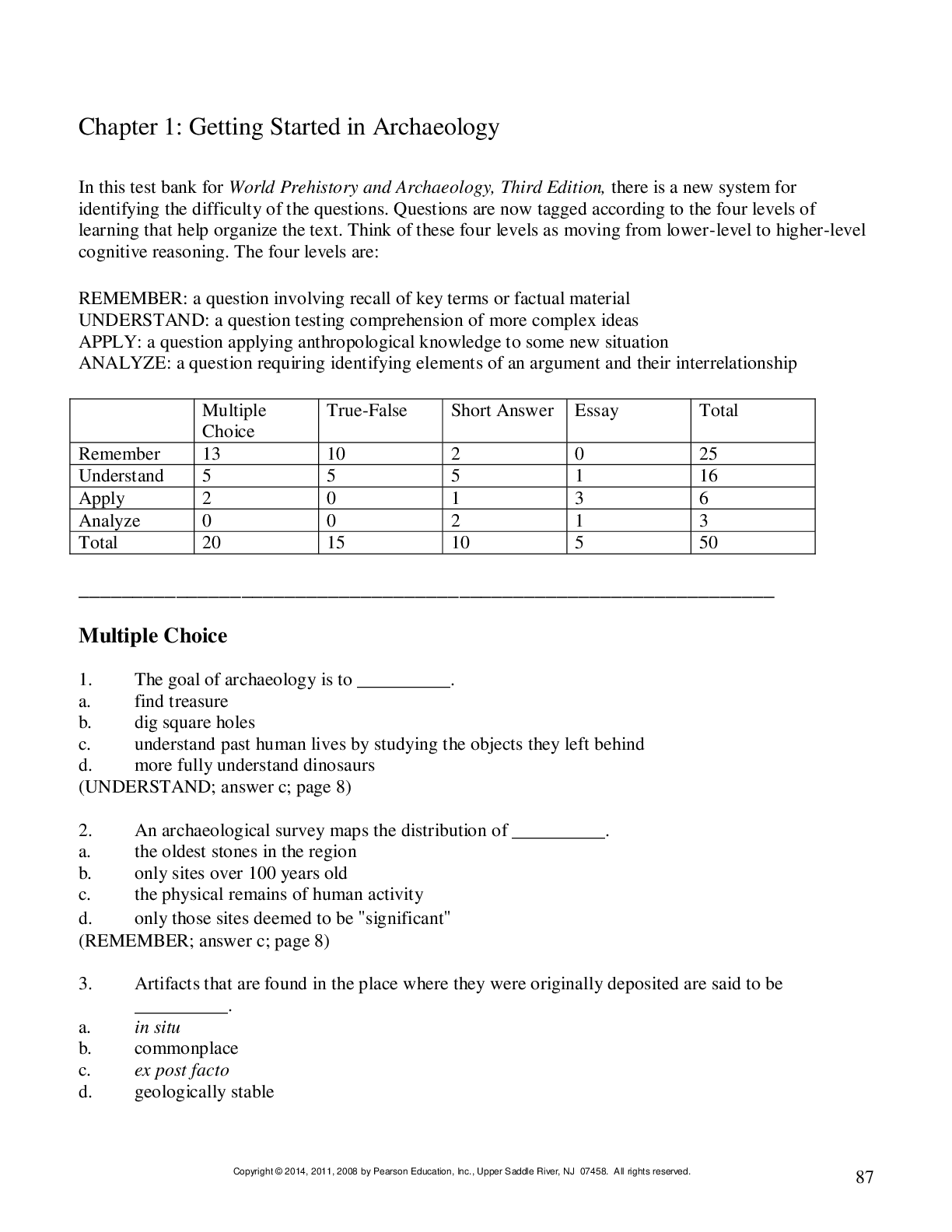
Buy this document to get the full access instantly
Instant Download Access after purchase
Buy NowInstant download
We Accept:

Reviews( 0 )
$25.00
Can't find what you want? Try our AI powered Search
Document information
Connected school, study & course
About the document
Uploaded On
Dec 10, 2024
Number of pages
285
Written in
Additional information
This document has been written for:
Uploaded
Dec 10, 2024
Downloads
0
Views
30







